 The article “Topology-Specific Synthesis of Self-Stabilizing Parameterized Systems With Constant-Space Processes,” authored by Ali Ebnenasir (SAS/CS) and Alex Klinkhamer, has been accepted for publication in the journal IEEE Transactions on Software Engineering. Read the full article here: https://ieeexplore.ieee.org/document/8651426
The article “Topology-Specific Synthesis of Self-Stabilizing Parameterized Systems With Constant-Space Processes,” authored by Ali Ebnenasir (SAS/CS) and Alex Klinkhamer, has been accepted for publication in the journal IEEE Transactions on Software Engineering. Read the full article here: https://ieeexplore.ieee.org/document/8651426
Kelly Steelman (CLS) has been selected from a competitive pool of applicants to participate in the Human Factors and Ergonomics Society (HFES) Science Policy Fellowship program.
The HFES Science Policy Fellows (SPF) program provides a valuable opportunity for HFES members to learn how to successfully advocate for human factors and ergonomics on the national stage. SPF Participants will receive extensive training in public affairs, advocacy and outreach to be provided by Lewis-Burke Associates and the HFES Government Relations Committee during the HFES Annual Meeting. They will also participate in an annual spring Capitol Hill Day in Washington, D.C., including a Hill visit training session and a policy-related speaker prior to the visit day. They will be invited to attend monthly conference calls with Lewis-Burke and the HFES Government Relations Committee covering ongoing events and opportunities for HFES to engage in policy decisions.
Following an initial one-year term in the SPF program, each program graduate will commit to two years of service in an outreach capacity. They will create a customized plan that may include continued participation in the Capitol Hill day and interactions with policymakers in Washington, DC, working at the local/state level, serving on the GRC or a subcommittee, and other forms of outreach developed by each participant. HFES SPF participants and graduates will form the basis of a future brain trust with expertise in outreach creating a pipeline of politically engaged and knowledgeable members within HFES.
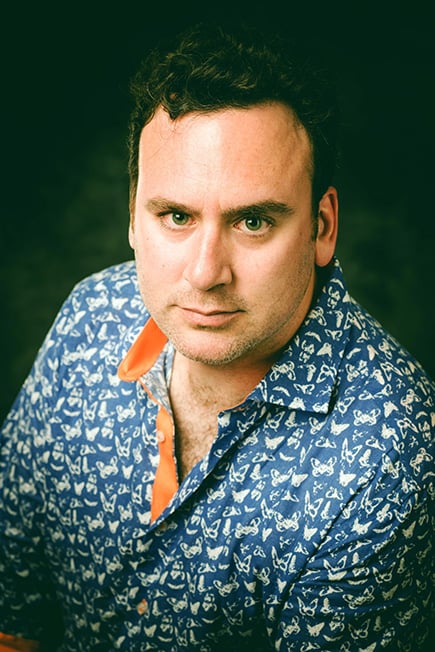 ICC Director Tim Havens (DataS) presented an invited talk, “Explainable Deep Fusion,” at the Technological University of Eindhoven, The Netherlands, on May 7, 2019.
ICC Director Tim Havens (DataS) presented an invited talk, “Explainable Deep Fusion,” at the Technological University of Eindhoven, The Netherlands, on May 7, 2019.
Like a winning trivia team, sensor fusion systems seek to combine cooperative and complementary sources to achieve an optimal inference from pooled evidence. In his talk, Havens introduced data-, feature-, and decision-level fusions and discussed in detail two innovations he has made in his research: non-linear aggregation learning with Choquet integrals and their applications in deep learning and Explainable AI (XAI).
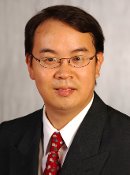
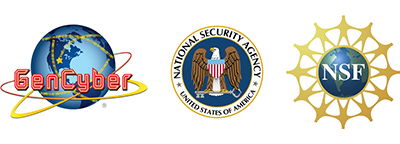 By Karen S. Johnson, ICC Communications Director
By Karen S. Johnson, ICC Communications Director
We live in a world where pretty much everything and everybody – individuals, companies, governments, critical infrastructure – are increasingly dependent on connected systems, networks and devices. And, as newspaper headlines reveal, those systems may be insecure and vulnerable to hackers.
“Nowadays, everybody is using computers, and more and more things are connected. That provides convenience, flexibility, a lot of great things, but it also opens the doors for hackers,” says Yu Cai, associate professor and program chair for the Computer Network and System Administration program at Michigan Technological University.
“The world has increasingly become a combination of the physical world and the cyber world,” Cai adds. “That’s why cybersecurity is important, because you want to protect yourself. As human beings, we evolved over thousands of years to take care of our security in the physical world. But in the cyber world, many don’t have a very good idea of how to protect themselves.”
Cai is principal investigator on two grant awards, each for about $85K, which are making possible two free, non-residential, week-long GenCyber summer camps on Michigan Tech’s campus. The first camp, for middle school and high school students, is the week of June 17. The second camp, for K-12 STEM teachers, is the week of August 12. Both camps and all learning materials are offered at no cost to camp participants. Each participant will receive a Raspberry Pi minicomputer. Breakfast and lunch are provided. For enrollment information, visit mtu.edu/gencyber.
Funded jointly by the National Security Agency (NSA) and the National Science Foundation (NSF), the goals of the nationwide GenCyber program are to increase interest in cybersecurity careers and diversity in the national cybersecurity workforce, help students understand correct and safe on-line behavior and how they can be good digital citizens, and improve teaching methods for delivery of cybersecurity content in K-12 curricula.
“This is part of our picture to make Michigan Tech a leader in cybersecurity research and education,” Cai says of this summer’s GenCyber camps. “We have other cybersecurity curriculum development grants that focus on college education, now we want to outreach to K through 12.”
In both camp sessions, participants will explore the world of cybersecurity through real-world case studies, hands-on learning activities and games, interactive lectures, career exploration, and field trips. Covered topics include safe online behavior, cyber ethics, fundamental computer and network knowledge, and cybersecurity career options and educational opportunities.
“We’ll also cover common vulnerabilities and weaknesses of computer systems, such as how hackers get into the systems, and how systems can be strengthened to defeat hackers against the hundreds of vulnerabilities,” Cai adds.
Tim Van Wagner, a lecturer at Michigan Tech and a co-PI on the grants, is the lead teacher for the camps. Cai and his other co-PIs—associate professor Guy Hembroff and assistant professor Bo Chen—will also present learning modules and assist with the camps.
K-12 pedagogical expertise in curriculum development was provided by Copper Country Intermediate School District (CCISD) staff members Emily Gochis, Director of the Region 16 MiSTEM Network, and Steve Kass, Educational Technologist.
“Steve and Emily provided a lot of input and suggestions regarding the camp curriculum and advised us in the best practices for teaching high school students,” Cai says, adding that they are also helping to promote the camps in local public schools.
Driving the curriculum are four principles: Learning by Storytelling, Learning by Doing, Learning by Gaming, and Learning by Teaching. Cai and his team will be assessing the effectiveness of these principles using several methods. The resulting research will be shared with the GenCyber program and the public.
The two grants are titled, “Innovative GenCyber Learning Experience for K-12 Teachers Through Storytelling + Teaching + Gaming + Doing” and “Innovative GenCyber Learning Experience for High School Students Through Storytelling + Teaching + Gaming + Doing.”
 The Office of the Provost and Senior Vice President for Academic Affairs has announced that Dr. Timothy Schulz (DataS), professor of Electrical and Computer Engineering, has been named a 2019 University Professor.
The Office of the Provost and Senior Vice President for Academic Affairs has announced that Dr. Timothy Schulz (DataS), professor of Electrical and Computer Engineering, has been named a 2019 University Professor.
The University Professor title recognizes faculty members who have made outstanding scholarly contributions to the University and their discipline over a substantial period of time. University Professors will not exceed 2% of the total number of tenured and tenure-track faculty at Michigan Tech. This year, two professors were awarded the title of University Professor. The second recipient is Dr. Kathleen Halvorsen, professor of Natural Resource Policy in the Department of Social Sciences.
The confidential process for selecting recipients spans the academic year and recipients for each award are notified in mid-May. Additional details regarding the award and selection procedures can be found on the provost’s website: mtu.edu/provost/faculty/awards.
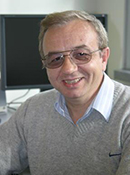 Dr. Soner Onder (CS, SAS) will present an invited talk titled “Program semantics meets architecture: What if we did not have branches?” at a workshop organized in honor of the 80th birthday of Prof. Yale Patt of University of Texas, Austin. Prof. Patt is a prominent researcher with decades of accomplishments in Computer Architecture.
Dr. Soner Onder (CS, SAS) will present an invited talk titled “Program semantics meets architecture: What if we did not have branches?” at a workshop organized in honor of the 80th birthday of Prof. Yale Patt of University of Texas, Austin. Prof. Patt is a prominent researcher with decades of accomplishments in Computer Architecture.
The workshop, titled “Yale:80 in 2019, Pushing the Envelope of Computing for the Future,” will take place July 1-2, 2019, in Barcelona, Spain. The workshop is organized by Universitat Politècnica de Catalunya and Barcelona Supercomputing Center, and sponsored by the Ministry of Science, Innovation and Universities of Spain, among others.
 Yu Cai (TTEC/ICC) is Principal Investigator on a project that has received a $82,416 Other Sponsored Activities Grant from the National Security Agency/National Science Foundation. The one-year project is titled, “Innovation GenCyber Learning Experience for High School Students Through Storytelling + Teaching + Gaming + Doing.” Bo Chen (SCS), Guy Hembroff (TTEC), and Tim Van Wagner (TTEC), are co-PIs.
Yu Cai (TTEC/ICC) is Principal Investigator on a project that has received a $82,416 Other Sponsored Activities Grant from the National Security Agency/National Science Foundation. The one-year project is titled, “Innovation GenCyber Learning Experience for High School Students Through Storytelling + Teaching + Gaming + Doing.” Bo Chen (SCS), Guy Hembroff (TTEC), and Tim Van Wagner (TTEC), are co-PIs.
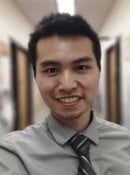 Zhen Liu (CEE/MTTI) is Principal Investigator on a project that has received a $90,418 contract with Michigan Department of Transportation. This project is titled “Improved Calculation of Scour Potential in Cohesive Soils and Scour Susceptible Rock.” Brian Barkdoll (CEE) and Stan Vitton (CEE) are co-PI’s on this 14-month project.
Zhen Liu (CEE/MTTI) is Principal Investigator on a project that has received a $90,418 contract with Michigan Department of Transportation. This project is titled “Improved Calculation of Scour Potential in Cohesive Soils and Scour Susceptible Rock.” Brian Barkdoll (CEE) and Stan Vitton (CEE) are co-PI’s on this 14-month project.
 Michigan Tech will offer two non-residential, week-long GenCyber camps this summer. The first camp is for local middle school and high school students (grades 7-12) and will be held the week of June 17. The second camp is for local K-12 STEM teachers and will be held the week of August 12.
Michigan Tech will offer two non-residential, week-long GenCyber camps this summer. The first camp is for local middle school and high school students (grades 7-12) and will be held the week of June 17. The second camp is for local K-12 STEM teachers and will be held the week of August 12.
Explore the world of cybersecurity with experts in the field through fun, real-world learning experiences. Camp activities include hands-on exercises, interactive lectures, games, career exploration, and campus tours.
All camp activities will be offered at no cost to camp participants. Visit mtu.edu/gencyber to learn more and register.
Funding of the camps is provided jointly by the National Security Agency (NSA) and the National Science Foundation (NSF).
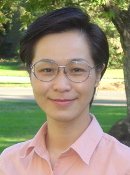 Graduate students Chong Cao and Joe Oncken work with researcher Bo Chen (CPS/ME-EM) in the Intelligent Mechatronics and Embedded Systems lab. In the lab, they develop Simulink models for smart city technology — and show how the models shift into real-life testing.
Graduate students Chong Cao and Joe Oncken work with researcher Bo Chen (CPS/ME-EM) in the Intelligent Mechatronics and Embedded Systems lab. In the lab, they develop Simulink models for smart city technology — and show how the models shift into real-life testing.
“We develop and validate the controls in our process using a simulation first,” Cao explained, to which Oncken added: “Simulink is just an on-computer simulation software that’s all visual — you put building blocks together — and make an entire model of an electric car, the electrical grid.”
Bo Chen is the Dave House Professor of Mechanical Engineering and Electrical Engineering. Joe Oncken is PhD Graduate Research Assistant in the Department of Mechanical Engineering – Engineering Mechanics; Chong Cao is a PhD Graduate Research Assistant in the Department of Electrical and Computer Engineering.
